Saudi bloc: can Riyadh strengthen the coalition and why was the Pakistani general appointed chief of the alliance headquarters?
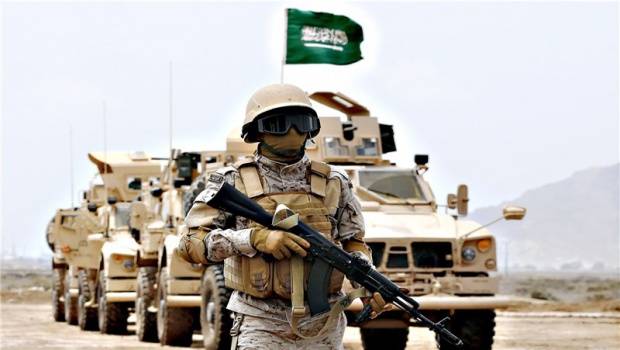
In addition, Saudi Arabia is very concerned about the activation of Iran, especially since relations between Iran and the US are gradually getting warmer, although, of course, they are far from normal. In this situation, Saudi Arabia has found for itself an outlet in the formation of a separate military-political bloc, which could include Asian and African countries with a predominantly Sunni population. Of course, Iran and Iraq, as well as Syria, were ordered into this bloc, but Riyadh expects to unite all other Islamic countries under its ideological leadership.
The main reason for the consolidation of Saudi Arabia is the desire to build a reliable defense against expansionist, as Riyadh believes, Iran’s activities. Shiite Iran is considered by the leadership of Saudi Arabia as the main rival of the kingdom for influence in the Islamic world. The danger of Iran for Saudi Arabia is aggravated by the fact that a very large Shiite community lives in the kingdom itself, constituting approximately 15% of the country's population. Moreover, Shiites inhabit the most economically important oil-bearing areas in northeastern Saudi Arabia. They have repeatedly organized mass demonstrations in defense of their rights, claiming discrimination by the government of Saudi Arabia.
The Saudi authorities themselves believe that behind the Shiite public and religious revival in the country are Iranian special services, interested in the "collapse" of Saudi Arabia. Therefore, the most severe repressive measures are being applied to Shiite leaders in Saudi Arabia, which even more incites both Iran and Shiites in other countries of the Middle East against Riyadh. For example, in January 2016, the Saudi authorities decided to execute the famous Shiite preacher Nimr Bakir al-Nimr (1959-2016), the sheikh, who enjoyed very great prestige among Saudi Shiites. Nimr al-Nimr grabbed the police of Saudi Arabia in 2012 year - after the brutal suppression of mass unrest in Shiite areas of the country. The death sentence to the preacher was approved by the King of Saudi Arabia himself Salman. The execution of Nimr al-Nimr caused a storm of indignation of the Shiite communities throughout the Middle East. In a number of countries in the region, mass demonstrations took place, accompanied by riots. In El Qatif, near which Sheikh en-Nimr was born in 1959, the Saudi authorities were forced to send military units to the protesters. The demonstration was harshly dispersed in neighboring Bahrain.
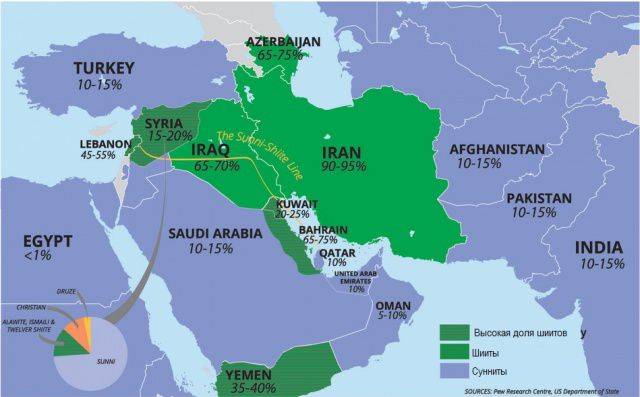
In Bahrain, Shiites make up 75% of the total number of Muslims living in the country. This is the majority of the population of the country. But since the Sunni dynasty is in power in Bahrain, the Shiites are also unhappy with the country's political system. It was they who made up the bulk of the protesters who took to the streets of the Bahraini capital in 2011. The suppression of popular uprisings was then carried out with the help of units of the armed forces of Saudi Arabia that arrived in the country.
Tension in the region makes Saudi Arabia look for new ways to strengthen its position. First of all, it is associated with the struggle against Iranian influence. To this end, Saudi Arabia is trying to consolidate the Sunnis living in most Islamic countries in Asia and Africa. Moreover, Riyadh still has the conditions necessary for solving this task - both financial resources and religious and political authority.
Just over a year ago, on December 15 of 2015, Saudi Arabia announced the creation of a new bloc - the Islamic Military Coalition against Terrorism. Its composition originally included the 34 state. This is actually Saudi Arabia, Bahrain, Qatar, Kuwait, United Arab Emirates, Yemen, Jordan, Lebanon, Turkey, Bangladesh, Malaysia, Maldives, Palestine, Pakistan, as well as a number of African states - Benin, Djibouti, Gabon, Guinea, Egypt , Comoros, Cote d'Ivoire, Libya, Mauritania, Mali, Morocco, Niger, Nigeria, Senegal, Somalia, Sudan, Sierra Leone, Togo, Tunisia, Chad. As we see, among African coalition members there are not only purely Islamic countries, but also states with a significant proportion of Muslims in the population (for example, Nigeria).
The main goal of creating this coalition was proclaimed the fight against terrorism and extremism. In fact, the accelerated pace of the creation of the Sunni bloc was explained by the successes of government forces with the support of the Russian aviation in Syria, the victories of the Iraqi army over the radicals, the advance of the Kurds in Syria and Iraq. That is, Saudi Arabia was simply worried about the impending large-scale changes in the political situation in the Middle East and decided to respond to them by creating a military-political alliance. The impressive list of countries participating in the new coalition seemed to demonstrate the seriousness of Saudi intentions. Moreover, Riyadh, in theory, should not skimp on the financial support of the new project.
However, the creation of a coalition in such a composition immediately identified several problems and contradictions. First of all, they are associated with the participation of a number of countries that can claim their own, separate from Riyadh, leadership in the Islamic world and in regional politics. First of all, we are talking about Pakistan, which is the most powerful country among the participating coalitions. Pakistan is one of the largest Muslim countries in the world. This is a very powerful militarily state, which itself claims to be a world-class power. Although Pakistan used the serious assistance of Saudi Arabia, its relations with Riyadh are very complicated. This is both friendship and competition at the same time. Pakistan cannot stand completely on the side of Saudi Arabia and the coalition being formed. The reason for this is the obvious anti-Iran orientation of the coalition.
The fact is that in Pakistan, first of all, there is a very large Shiite community, which has a big weight in the political and economic life of the country. Secondly, the culturally Pakistani population, even Sunnis, is closer to the Iranians than to the Arabs of Saudi Arabia. Historically, long-standing cultural, economic and political ties existed between Iran and the territories of modern Pakistan.
Thirdly, Pakistan has a long history very friendly relations with Iran. Together with Iran, Pakistan is addressing the fight against the Baloch national liberation movement in the historical region of Baluchistan, divided between the two countries. At one time, Iran supported Pakistan in the conflict with India, so Islamabad is actually a “debtor” of Tehran. And I must say, it pays the debt honestly. Pakistan has always supported the easing of international sanctions against Iran. Among the Pakistani population, Iran sympathizes with up to 75-80%. That is, the full participation of Pakistan in a coalition, in fact, directed not so much against terrorists, as against the growing Iranian influence, remains a big question.
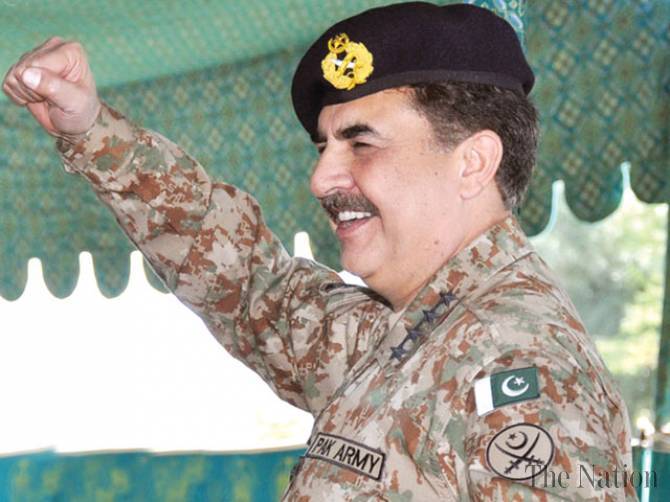
However, the beginning of 2017 of the year was marked by a sensational appointment. General of the Army Rachel Sharif, Pakistani military leader, was invited to the post of chief of staff of the troops of the Islamic Military Coalition, in 2013-2016. occupying the post of chief of staff of Pakistan ground forces (in fact, this is the post of commander-in-chief of land forces). Rachel Sharif is one of the most famous modern Pakistani warlords. The 60-year-old is a native of Quetta, the capital of the province of Baluchistan, but his parents came to Balochistan from Punjab. They belonged to the Punjabi military aristocracy. Rachel Sharif chose his career as an officer. She has developed very well. This was facilitated by the authority of the family in the military environment. Rachel Sharif's elder brother, Rana Shabbir Sharif, who served as a company commander in the 6 regiment of the border troops, died heroically in the 1971 year during the next Indo-Pakistani war. Since Rana Shabbir Sharif was a classmate of Pervez Musharraf, who became the commander-in-chief of the Pakistani army and president of the country in 2001-2008, Pervez Musharraf subsequently promoted career advancement to Rahil Sharif. Already during the reign of Musharraf, Sharif was appointed commander of the 11 Infantry Division. Then he was the commandant of the military academy in Kakul, commanded the army corps and served as the inspector general of the Pakistani army for combat training. In 2013-2016 He led the Pakistan Army Staff.
Sharif has always maintained a tough line against the Taliban, which he considered more dangerous for Pakistan than even neighboring India. Under the leadership of Sharif, the Pakistani ground forces conducted a series of successful operations against the Taliban and other radical groups in the historic region of Waziristan. It is possible that it was Rakhil Sharif’s reputation as an implacable opponent of the Taliban that served his new appointment. Naturally, the appointment of a Pakistani general to the post of chief of staff of the Islamic Coalition can also be understood as a definite nod to Riyadh towards Islamabad, showing that Saudi Arabia is quite ready to “share” the leadership of the coalition with its powerful partner.
However, in Pakistan itself, the appointment of General Sharif to the post of chief of staff of the pro-Saud coalition troops was perceived ambiguously. In Islamabad, they were afraid of a possible deterioration in relations with Iran. After all, for a long time Pakistan has managed, despite the cooperation with Saudi Arabia, to maintain friendly relations with Iran. What will happen now? After all, it turns out that the armed forces, which in the future may be involved against Iran, but in practice and are now fighting against Iranian interests in the same Yemen, were led by a Pakistani general. Almost immediately after receiving the first news of the new appointment of General Sharif, the Pakistani media began to reassure the public. They say that one of the most important conditions that the General put before the Saudis was an invitation to the Iranian coalition. Otherwise, Sharif, it seems, will refuse to command the forces of the alliance. Hastened to renounce the involvement in the appointment of Rachel Sharif and the Pakistani leadership. According to him, the general made the choice on his own and invited him not as a representative of Pakistan, but as an excellent military specialist, especially since the 60-year-old General Sharif officially resigned from November 29 2016.
By the way, Pakistan is not the only “problematic country” in the coalition. Another player with obvious own ambitions and claims to leadership in the region is Turkey. Moreover, Turkey is also part of the NATO bloc. Of course, a confrontation between NATO and the Islamic Coalition is hardly possible, but everything can be, and how does Ankara behave in this case, for which cooperation with the United States, with Europe, and with Russia, means no less than ties with Saudi Arabia?
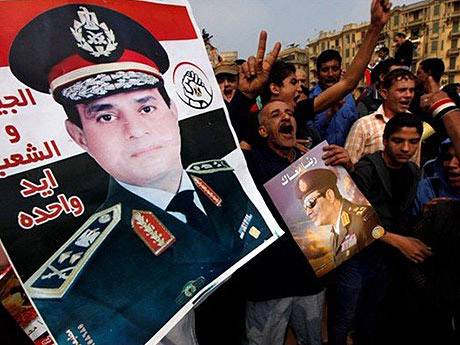 Another serious player is Egypt. His leadership, working with Saudi Arabia, pursues its own goals, first of all - to improve the financial situation of the country. But the leaders of the country are in no hurry to turn the Egyptian army into "cannon fodder" for Riyadh. Therefore, cooperating with Saudi Arabia, they are not very active in the development of a new coalition. For Cairo, participation in the Islamic Coalition is a non-binding diplomatic move. For example, Egypt refused to participate from its ground forces in a military operation in Yemen. Of course, he did not send his army units and Pakistan to Yemen, which placed the entire burden of the ground operation on Saudi Arabia and the United Arab Emirates, whose armed forces, despite their splendid funding, suffer one setback after another.
Another serious player is Egypt. His leadership, working with Saudi Arabia, pursues its own goals, first of all - to improve the financial situation of the country. But the leaders of the country are in no hurry to turn the Egyptian army into "cannon fodder" for Riyadh. Therefore, cooperating with Saudi Arabia, they are not very active in the development of a new coalition. For Cairo, participation in the Islamic Coalition is a non-binding diplomatic move. For example, Egypt refused to participate from its ground forces in a military operation in Yemen. Of course, he did not send his army units and Pakistan to Yemen, which placed the entire burden of the ground operation on Saudi Arabia and the United Arab Emirates, whose armed forces, despite their splendid funding, suffer one setback after another. The coalition created under the patronage of Saudi Arabia can hardly be assessed as a serious force, if only because of the presence of many internal contradictions between the countries that are part of it. Take, at least, the active activities of radical groups in the countries of North and West Africa. One must be too naive to believe the ignorance of the African governments about the involvement of the monarchies of the Persian Gulf in financing the radicals. But African presidents agreed to participate in the coalition for financial reasons.
Finally, the Prosaud coalition has too many external opponents, with whom Riyadh cannot afford. These are the USA with NATO, and Iran, and Russia. On top of that, Saudi Arabia has its own internal problems, so strong that many analysts seriously argue about the prospects for future retention of Saudi Arabia as a single state.
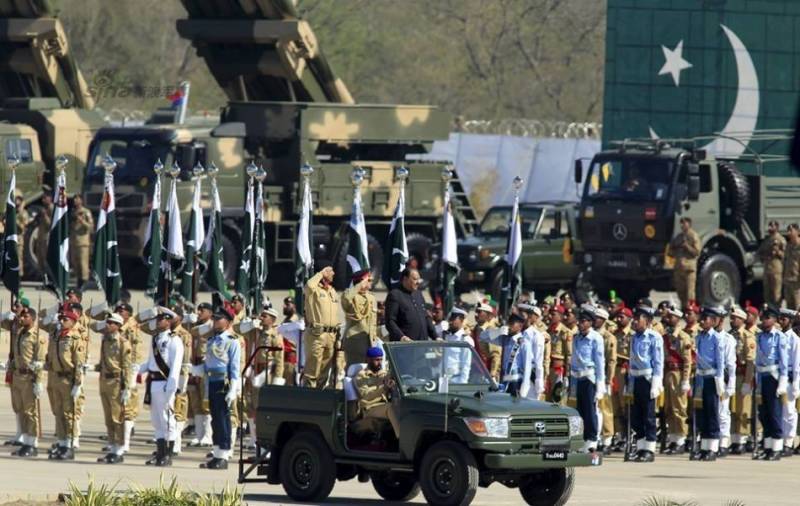
Information